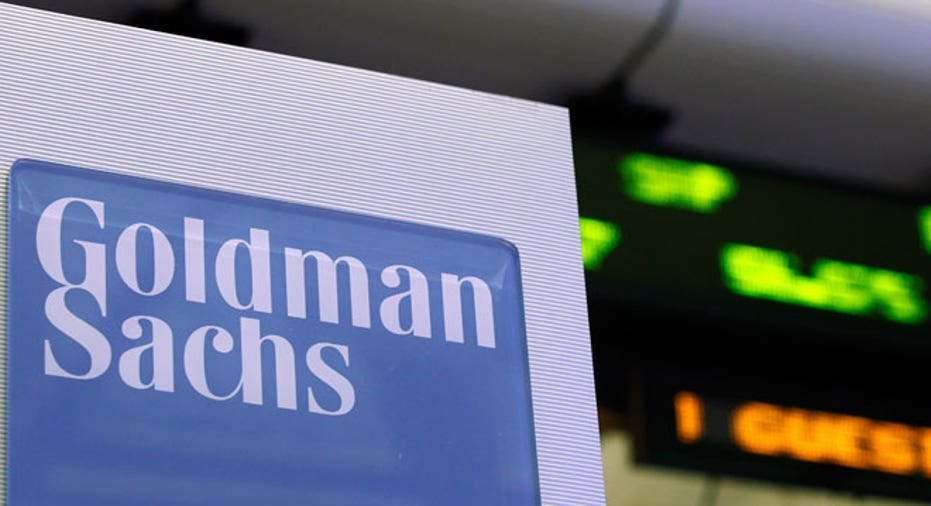Goldman Braces to Slash Fixed-Income Staff Amid Trading Swoon

Goldman Sachs (NYSE:GS) appears to be throwing in the towel.
Executives at the biggest U.S. investment bank have now indicated to Wall Street analysts that they could make significant cuts in their fixed-income trading staff amid a sharp slowdown in business conditions.
FOX Business Network has also learned that Goldman is likely to provide guidance on the size and scale of the cuts when its reports second-quarter earnings on July 15 as investors become increasingly focused on the shrinking profitability of the firm’s once-mighty bond trading desk.
A Goldman spokesman declined to comment.
Each year, Goldman and many other firms on Wall Street cull those executives considered to be poor performers. The New York-based financial giant usually cuts about 10% of its bottom producers.
But analysts say the cuts being envisioned by Goldman could go further given the recent decline in fixed-income trading revenue. Post-financial crisis regulations has resulted in less Wall Street risk taking, and thus lower trading profits particularly on Wall Street bond trading desks where new rules squeezed activity the most. Lower volatility has only added to the fixed-income woes on the Street.
Brad Hintz, a senior analyst at Sanford C. Bernstein, said he expects a more significant reduction in the coming weeks after the firm assesses its business model: “I expect continued headcount reductions in fixed income after Wall Street’s mid-year review,” he said.
Firms such as Citigroup (NYSE:C) have indicated that trading revenue could fall more than 20% in the second quarter. A similar decline at Goldman would hit the firm harder, since it has one of the biggest trading desks in banking.
The cutbacks could also signal a change in Goldman’s business model under the leadership of chief executive Lloyd Blankfein and president Gary Cohn. Both come from the firm’s fixed-income trading business and since taking over, they’ve modeled the firm more as a risk-taking hedge fund than Goldman’s traditional role as a white-shoe investment bank. The result has been huge earnings in bond trading and large bond-trading losses during the 2008 financial crisis.
Since then, regulations like the Dodd-Frank financial reforms have limited Goldman’s ability to take risk—the full effect of which has now started to kick in. Some analysts say the firm may have to make dramatic changes to its business model as part of the job cuts. During the 1990s internet boom, Goldman considered buying electronic brokerages E*Trade (NASDAQ:ETFC) and Charles Schwab Corp. (NYSE:SCHW), and some bankers say Goldman may have to revisit such moves to adapt to the current regulatory environment.
Another factor squeezing Goldman’s traditional business model: the regulatory assault on so-called “dark pools” or private stock exchanges operated by Wall Street firms. Goldman operates one of the largest dark pools on Wall Street known as Sigma-X and recently the New York Attorney General filed civil fraud charges against Barclays over allegations that it misled investors using its dark pool. The Financial Industry Regulatory Authority on Tuesday fined Goldman $800,000 for alleged dark-pool abuses, and some analysts predict that many dark pools will be forced to close as regulations tighten.
“Goldman has a lot of cash that (regulators) won’t let them trade with and since dark pools will be going the way of the dinosaur, I can see them looking at firms like E*Trade and Charles Schwab,” said one analyst who spoke on the condition of anonymity.
A Goldman spokesman declined to comment on possible acquisitions.
Inside Goldman, executives have been debating the size and scope of cuts the company should make amid a sharp decline in revenue. Blankfein has been hesitant to make large cuts out of fear that the fixed-income trading slowdown is cyclical and the business could bounce back. However, analysts say that a pickup seems unlikely, at least in the near term, and many executives inside Goldman are beginning to agree.
Hintz, a long-time fan of Goldman’s business model, downgraded the stock Tuesday morning largely due to the difficulties the trading business will continue to face.
“We are now convinced that the major banks' trading businesses will not recover quickly,” he said in a note to clients. “Indeed over the next two years Bernstein has difficulty projecting trading returns above the cost of capital at Goldman Sachs.” He now rates Goldman “market perform” with a price target of $180, down from an “outperform” and $205 price target.
The cuts will not come as a complete surprise. FOX Business earlier reported that a sharp reduction in trading revenue had caused executives to brace for additional layoffs in the firm’s trading ranks unless business conditions improved. At an investor conference earlier this quarter, Goldman Sachs president Gary Cohn also conceded that the trading environment is difficult and could lead to head-count reductions.
Dick Bove, an analyst at Rafferty Securities, said larger cuts in trading are inevitable at Goldman and elsewhere on Wall Street.
“I think that all major firms are going to continue to reduce the number of live traders as they move more towards electronic trading,” Bove said. “It’s an ongoing process.”



















